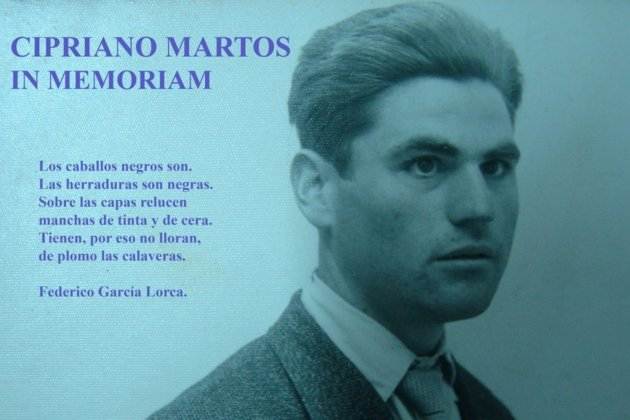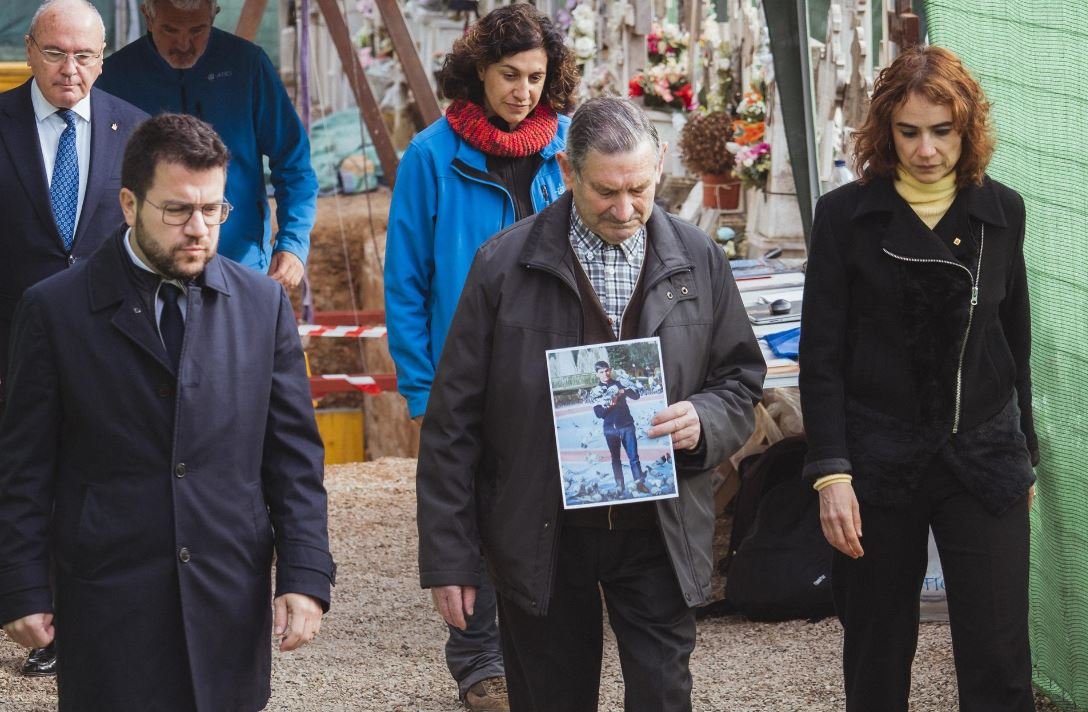A positive result. The Catalan department of Justice, Rights and Memory has confirmed, this Wednesday, the identification of the body of the anti-Franco dissident, union activist and worker, Cipriano Martos, buried in a mass grave in the Reus cemetery in September 1973, after being tortured to death at the hands of the Civil Guard who forced to him to ingest sulphuric acid and petrol. On January 10th, a Catalan archaeological team engaged in the Spanish state's massive ongoing task of identifying those buried in mass graves confirmed that, of the 41 people exhumed in this dig, one was compatible both with the physical characteristics of Cipriano Martos (sex, age, dimensions, wounds) and with the spatial characteristics of the grave. At that point the remains were transferred to the laboratory to begin anthropological and genetic studies, extracting genetic samples and cross-referencing the data with those of relatives enrolled in the Genetic Identification Programme. The results of the genetic and anthropological tests have confirmed that the remains correspond to those of Cipriano Martos, according to Justice.
Last month, Antonio Martos, Cipriano's brother, attended the exhumation of the remains, accompanied by a Catalan government entourage, headed by president Pere Aragone and the justice minister, Gemma Ubasart. Martos is one of the twenty people exhumed who have been identified in Catalonia since the creation of the Genetic Identification Programme in 2016. The family of Cipriano Martos has expressed the desire to take the remains of the anti-Francoist to Loja, in Granada, to be buried with his parents. His brother asked, a month ago now, that the Spanish government take over the transfer. No response has been received so far.
A trade unionist, tortured to his death
It has been estimated that Spain still has more disappeared victims of violence buried in mass graves than any other country except Cambodia. A large proportion of those were people who were killed in Spain's Civil War, between 1936 and 1939, and in the years immediately afterwards. However, the trade unionist Cipriano Martos Jiménez, belonged to the next generation. Born in 1942 in an Andalusian village, near Granada, he lived his entire 31-year life under the Franco dictatorship. As a young man, seeking work, he emigrated to Morón de la Frontera and then north to Teruel, Sabadell, Terrassa and Reus. He had several trades: day labourer, miner, textile worker and bricklayer. He joined the OSO trade union (Workers' Union Opposition), was a member of the PCE M-L (Spanish Marxist-Leninist Communist Party) and a member of the FRAP (Revolutionary Anti-Fascist and Patriotic Front).
The Civil Guard arrested him on August 25th, 1973, after a political action in the Catalan town of Igualada, and took him to the Reus barracks, accused of illegal propaganda and of belonging to the FRAP. He was interrogated and tortured, and two days later, on August 27th – as a result of ingesting a corrosive substance referred to as "the liquid of truth", a combination of sulfuric acid and gasoline – he was transferred to a Reus hospital. On August 29th, despite his poor state of health, a judge took his statement. The Civil Guard prevented the family from visiting him. On September 17th, 1973, at 10:15pm, he died as a result of an internal hemorrhage. The death was registered on September 19th in the Civil Registry of Reus and his remains were secretly buried on September 20th, 1973, in a charity service provided by Reus City Council, in the pit identified as 11-67 North, in Reus Cemetery, without his family being permitted to attend the burial or take the body to the land of his birth, Granada. Now, half a century later, they can finally do so.

The 887 documented mass graves
The Catalan justice department details that in Catalonia there are 887 documented Civil War graves, with an estimated 14,000 people buried in them. In total, the government has been able to recover the remains of 846 individuals in 77 different sites across the country, 25 of which were opened during 2022.
Recently, the government of the Generalitat has announced that it will double the budget for the archaelogical interventions in Civil War and Franco regime graves, to reach a total of 4.5 million euros, which will continue until 2026. The Catalan department of Justice, Rights and Memory reiterates its ongoing call to the public to register family members who disappeared during the Civil War and the Franco regime in the census of missing persons and provide DNA samples to be included in the Genetic Identification Programme.

